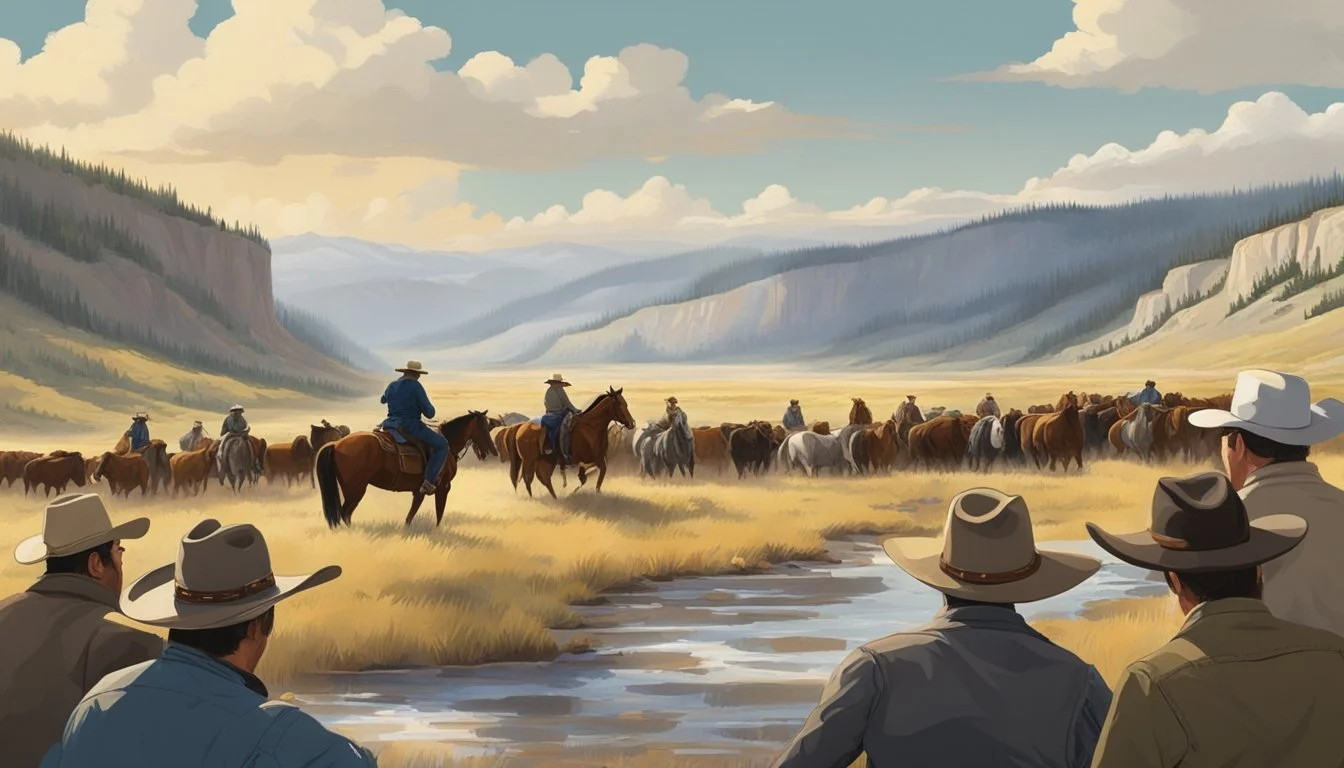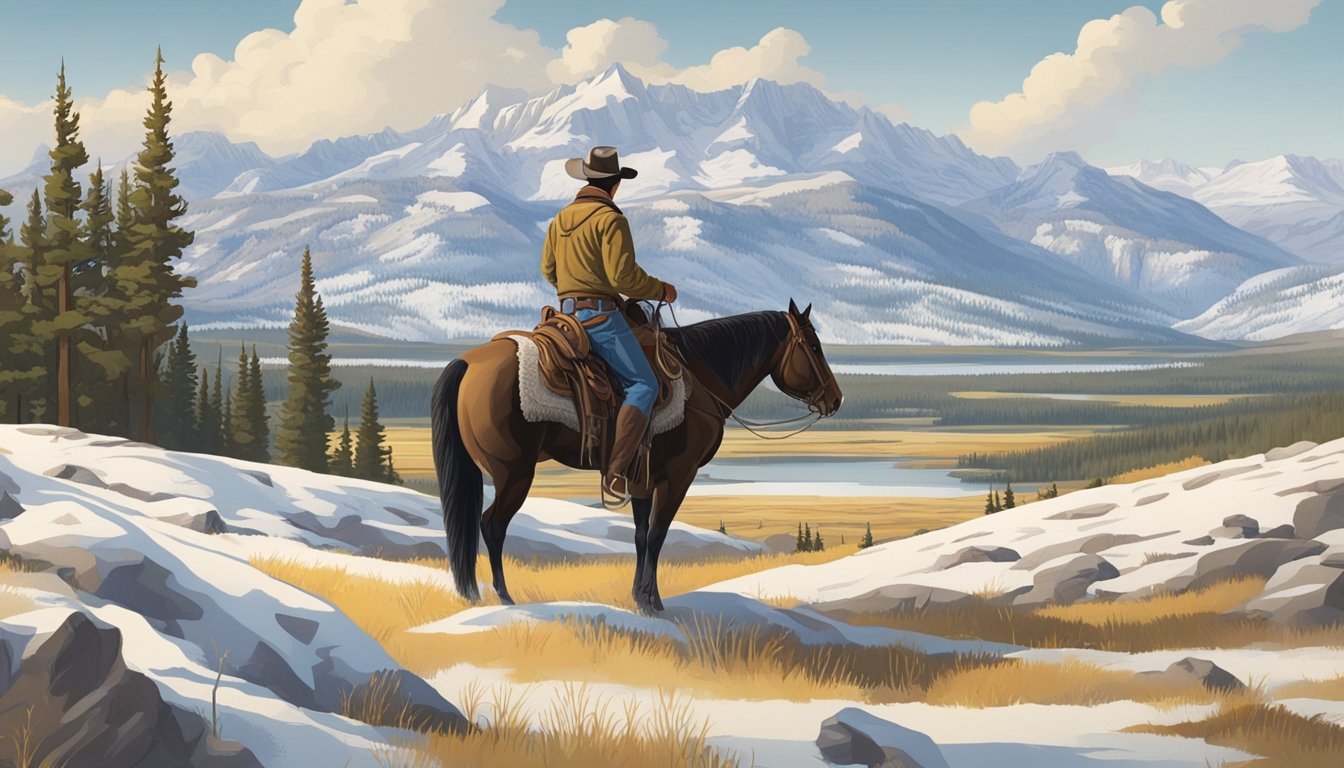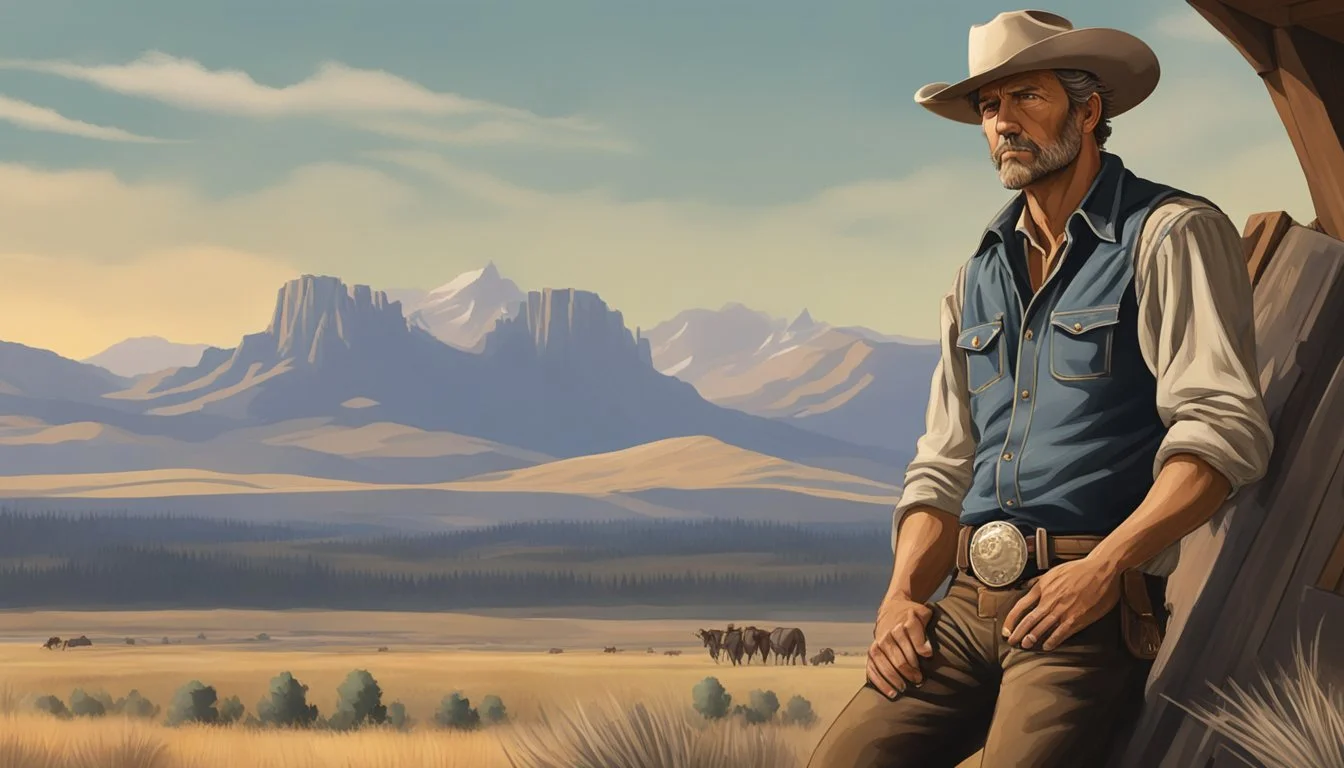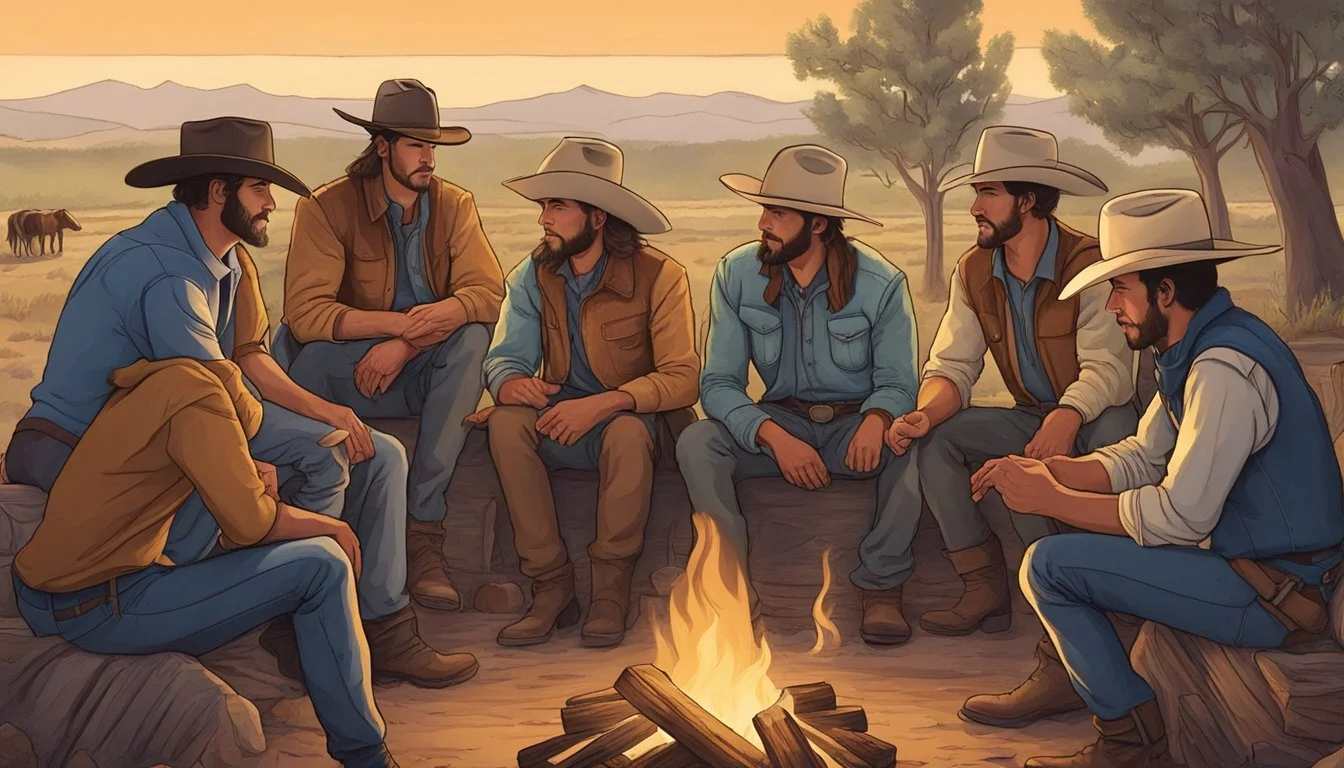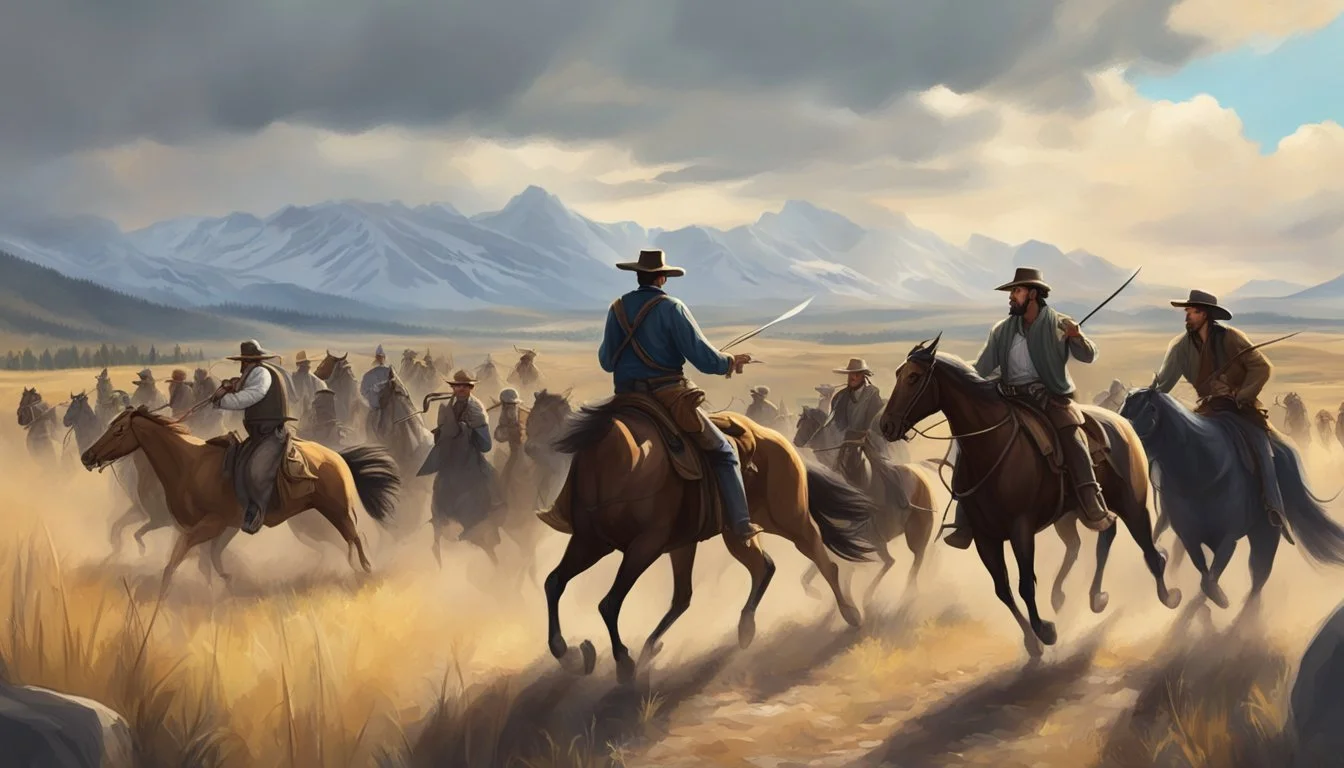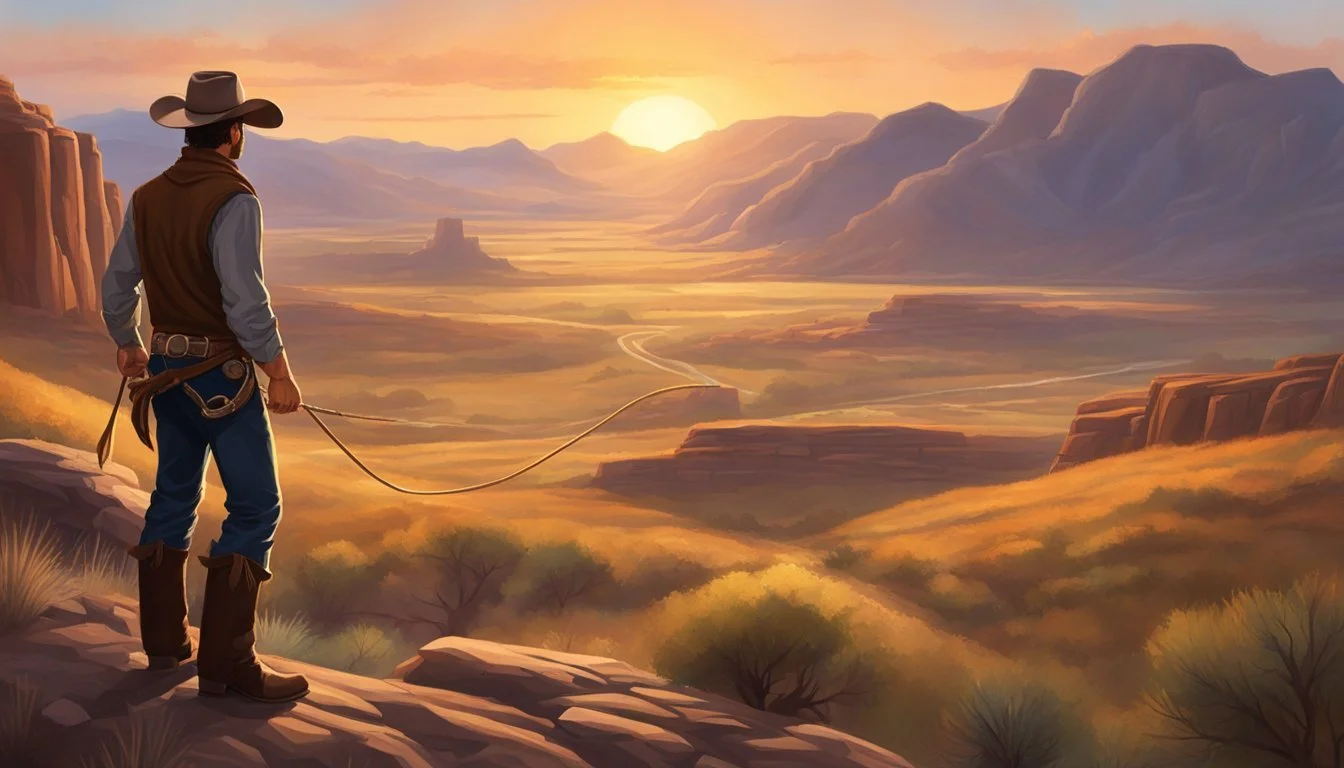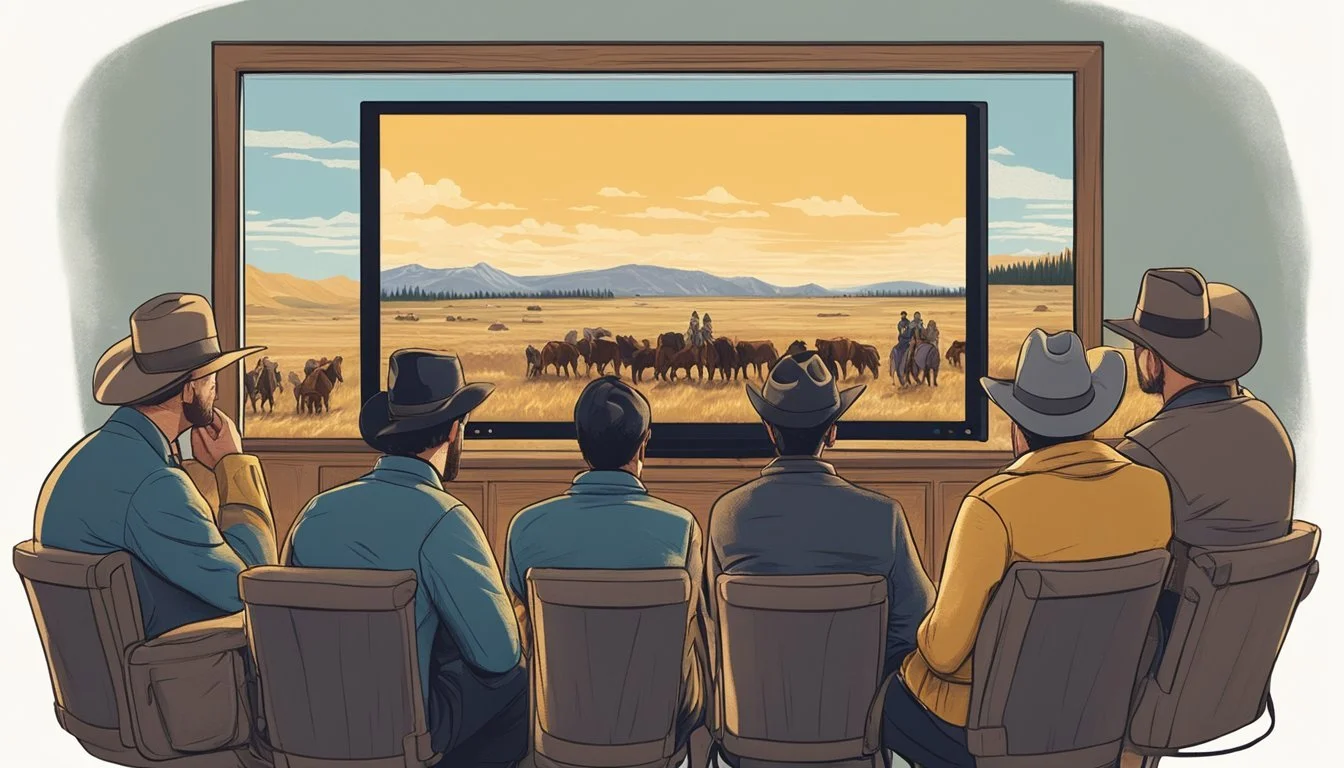Yellowstone Show Vegan Sparks Fiery Debate Between Ranchers and Activists
The hit TV series Yellowstone has sparked discussions about veganism through its portrayal of environmental activist Summer Higgins. As a passionate vegan character, Summer clashes with the ranching lifestyle of the Dutton family, bringing debates about food ethics to the forefront of the show.
Yellowstone presents a nuanced view of veganism by contrasting Summer's beliefs with the realities of ranching and farming. In one memorable scene, John Dutton challenges Summer's stance by pointing out that crop production also results in animal deaths. This exchange highlights the complexities of food production and environmental impact.
Summer's presence on the show adds tension and conflict, particularly in her interactions with Beth Dutton. Their opposing views on meat consumption and land use culminate in heated arguments and even physical altercations, demonstrating the passionate divides that often exist between vegans and those in the ranching industry.
Overview of Yellowstone
Yellowstone is a popular television drama series set in Montana. It follows the Dutton family as they struggle to maintain control of their vast ranch amid conflicts with developers, politicians, and Native American tribes.
Key Characters and Plot
The series centers on John Dutton, played by Kevin Costner, the patriarch of a powerful ranching family. His children Beth, Jamie, and Kayce each play crucial roles in the family's operations and conflicts.
Rip Wheeler, the ranch foreman, is fiercely loyal to the Duttons. The show explores complex family dynamics, power struggles, and the challenges of preserving a way of life in the modern American West.
Land disputes, political maneuvering, and violent confrontations drive much of the plot. The Duttons face threats from various adversaries, including land developers, rival ranchers, and government officials.
Cultural Impact of the Series
Yellowstone has garnered a large and dedicated fanbase since its debut in 2018. The show's portrayal of ranching life and rural American values has resonated with many viewers.
It has sparked discussions about land use, conservation, and the changing nature of the American West. The series has also influenced fashion trends, with western wear gaining popularity among fans.
Yellowstone's success has led to the creation of spin-off series and increased tourism to Montana. It has brought attention to issues facing modern ranchers and highlighted the complexities of land ownership in the region.
Character Analysis
The complex characters of Yellowstone drive the show's dramatic storylines and conflicts. Their distinct personalities and motivations shape the narrative in unexpected ways.
John Dutton's Role as Governor
John Dutton's ascension to governor marks a significant shift in the power dynamics of Montana. As a rancher-turned-politician, he brings his no-nonsense approach to the state's highest office. His decisions often blur the line between personal interests and public service.
John's leadership style remains firmly rooted in his ranching background. He approaches political challenges with the same determination he uses to protect his land. This sometimes puts him at odds with established political norms.
Governor Dutton's policies frequently favor rural and agricultural interests. This stance creates tension with environmental groups and urban constituents. His character embodies the clash between tradition and progress in the modern West.
Summer Higgins: The Vegan Activist
Summer Higgins represents a stark contrast to the Dutton family's way of life. As a vegan environmental activist, she challenges the ranching culture that John Dutton embodies. Her passionate beliefs often lead to confrontations with local farmers and ranchers.
Summer's character brings attention to environmental concerns in Montana. She leads protests against industrialized farming and advocates for animal rights. Her activism creates a complex dynamic with John Dutton, as they find themselves on opposite sides of key issues.
Despite their differences, Summer and John develop an unexpected connection. This relationship highlights the show's exploration of opposing viewpoints and the potential for understanding between adversaries.
Beth & Jamie: A Complex Relationship
Beth and Jamie Dutton's relationship forms one of Yellowstone's most intricate and volatile dynamics. As siblings, they share a tumultuous history marked by rivalry and deep-seated resentment.
Beth's fierce loyalty to her father John contrasts sharply with Jamie's more conflicted stance. Their differing approaches to protecting the family legacy often lead to intense confrontations. Beth's sharp wit and aggressive tactics frequently put her at odds with Jamie's more calculated methods.
Jamie's struggle for acceptance within the Dutton family adds layers to his character. His actions often stem from a desire to prove his worth, leading to complex moral dilemmas. The ongoing tension between Beth and Jamie drives many of the show's most dramatic moments.
Themes of Conservation and Ranching
Yellowstone explores the complex relationship between ranching and environmental conservation in Montana. The show highlights the tensions between traditional land use and modern ecological concerns.
Ranchers versus Environmentalists
The series portrays a ongoing conflict between ranchers and environmental activists. Ranchers, represented by the Dutton family, view their way of life as essential to preserving Montana's landscape and culture. Environmental groups push for stricter land use regulations and wildlife protection measures.
This clash plays out in confrontations over grazing rights, water usage, and development projects. The show depicts ranchers as stewards of the land, while also acknowledging the environmental impacts of cattle farming. Environmental activists are shown advocating for wilderness preservation and sustainable practices.
Yellowstone doesn't shy away from the complexities of this debate. It presents valid arguments from both sides, allowing viewers to consider the nuances of land management in the American West.
Land Stewardship and Dutton Family
The Dutton family's approach to land stewardship is a central theme in Yellowstone. As multi-generational ranchers, they see themselves as guardians of Montana's natural beauty and cultural heritage.
John Dutton, the family patriarch, often emphasizes the importance of preserving open spaces and wildlife habitats. The show portrays the family's efforts to maintain a balance between cattle ranching and conservation. This includes sustainable grazing practices and protecting key wildlife corridors.
The Duttons face challenges from developers seeking to build on their land. These conflicts highlight the pressures on ranching communities to sell out to more profitable ventures. Through the Duttons' struggles, Yellowstone explores the difficulties of maintaining traditional land use in the face of economic and environmental pressures.
Veganism in Yellowstone
The hit TV series Yellowstone tackles the topic of veganism through character conflicts and dialogues. It presents contrasting viewpoints on ethical food choices and the realities of ranching.
The Portrayal of Vegan Lifestyle
Yellowstone introduces veganism through the character of Summer Higgins, played by Piper Perabo. She arrives at the Dutton ranch as an environmental activist and vegan protester.
Summer's beliefs clash with the ranching lifestyle of the Duttons. This conflict leads to heated debates about food production and animal welfare.
The show presents veganism as an idealistic but potentially naive worldview when confronted with the practicalities of agriculture. John Dutton, portrayed by Kevin Costner, challenges Summer's perspective by highlighting the ecological impact of crop farming.
Impact on Public Perception
Yellowstone's portrayal of veganism has sparked discussions among viewers. The show presents arguments for and against vegan lifestyles, though it leans towards favoring traditional ranching practices.
Some viewers feel the series oversimplifies vegan motivations. Others appreciate the show's attempt to address complex ethical issues around food production.
The debates between characters like John and Summer reflect real-world conversations about sustainable food systems. This representation has prompted viewers to consider the broader implications of their dietary choices.
Yellowstone's treatment of veganism underscores the show's focus on the challenges facing modern ranchers and rural communities.
Conflicts and Developments
Yellowstone portrays intense clashes between various factions vying for control of the land and its resources. These conflicts drive much of the show's drama and highlight complex environmental and economic issues.
The Market Equities Battle
Market Equities, a powerful corporation, seeks to develop parts of Paradise Valley into an airport and ski resort. This puts them at odds with the Dutton family, who fiercely defend their ancestral ranch lands. The company employs aggressive tactics, including attempts to manipulate local politics and exploit legal loopholes.
John Dutton and his allies fight back through political maneuvering and sometimes extralegal means. This struggle represents broader tensions between preserving traditional ways of life and embracing economic development in rural areas.
Protests and Responses
Environmental activists feature prominently in Yellowstone's storylines. Summer Higgins leads protests against ranching practices, believing they harm animals and the environment. Her actions bring her into direct conflict with the Duttons and other ranchers.
John Dutton confronts Summer, arguing that farming crops for vegan diets also results in animal deaths. This scene highlights the complexities of food production and environmental ethics. Summer later faces legal consequences for her activism, including potential jail time. She receives clemency but remains under house arrest, illustrating the personal costs of environmental protest.
Cultural References and Symbolism
Yellowstone weaves rich cultural references and symbolic elements throughout its narrative. These aspects deepen the show's portrayal of modern Western life and values.
Branding and Identity
The Yellowstone ranch's iconic "Y" brand symbolizes power and legacy. Characters branded with it demonstrate unwavering loyalty to the Dutton family. This practice reflects real-world ranching traditions while serving as a metaphor for belonging and sacrifice.
The show's costumes and set design reinforce authentic Western identity. Characters often sport cowboy hats, boots, and belt buckles. Ranch interiors feature rustic decor, antlers, and leather furnishings. These visual cues establish a strong sense of place and cultural identity.
Cowboy Culture in the Show
Yellowstone embraces cowboy culture through its characters' lifestyles and values. Horseback riding, cattle drives, and rodeos feature prominently. The show highlights skills like roping and bronc riding, celebrating traditional cowboy expertise.
Characters embody cowboy virtues like self-reliance, toughness, and a connection to the land. John Dutton personifies the stoic rancher archetype. His children navigate tensions between modern life and cowboy traditions.
The series explores the "cowboy way" as both admirable and potentially outdated. It presents complex characters who grapple with changing times while clinging to their cultural roots.
Diet and Food in Yellowstone
Food plays a central role in the Yellowstone series, reflecting the characters' lifestyles and values. The show explores traditional ranch cuisine alongside newer dietary trends.
The Dinner Table Scenes
Dinner table scenes in Yellowstone offer insights into the Dutton family dynamics. Traditional ranch fare like beef and hearty meals take center stage. These gatherings often become venues for heated discussions and conflicts.
In one memorable scene, a vegan character clashes with the Duttons over their meat-centric diet. This encounter highlights the cultural divide between urban and rural perspectives on food and ethics.
The show portrays ranch cooking as a symbol of heritage and community. Characters bond over shared meals, reinforcing family ties and ranch traditions.
Non-Traditional Diets
Yellowstone occasionally touches on non-traditional diets, contrasting them with the ranchers' way of life. Vegan and vegetarian characters appear, challenging the meat-focused culture of the ranch.
These dietary choices often spark debate and tension. The show presents differing views on food ethics and environmental impact. Some characters express skepticism towards plant-based diets, while others defend them.
Gluten-free options and trendy foods like quinoa are sometimes mentioned, usually as objects of mild derision by the main characters. These references underscore the cultural gap between urban food trends and rural traditions.
Notable Episodes
Yellowstone's fifth season featured memorable moments that sparked viewer discussions. A controversial dinner scene and an impactful protest episode stood out as particularly notable.
Season 5 Highlights
Episode 5 of Season 5 delivered one of the show's most talked-about scenes. The Dutton family dinner turned explosive when Summer Higgins, an environmental activist, clashed with Beth Dutton. Their heated exchange culminated in a physical altercation, shocking viewers. This episode effectively highlighted the tension between traditional ranching values and modern environmental concerns.
The cattle branding trip also proved significant. John Dutton's decision to take a break from his duties as governor and join the ranch work emphasized his internal conflict between family obligations and political responsibilities.
The Vegan Protest Episode
Season 4 featured a memorable episode centered on a vegan protest at the Dutton ranch. John Dutton, played by Kevin Costner, delivered a powerful speech addressing the protesters' concerns. He explained the realities of ranching and meat production, challenging the activists' perspectives.
This episode sparked discussions among fans about the complexities of sustainable agriculture and environmental activism. Show creator Taylor Sheridan revealed he wrote the scene to illuminate the true costs of veganism and its impact on agricultural communities.
Responses to the Show
Yellowstone's portrayal of ranching and environmental issues has sparked diverse reactions from critics and viewers alike. The show's treatment of topics like veganism and land use has been particularly contentious.
Critical Acclaim and Criticism
Critics have praised Yellowstone for its stunning cinematography and strong performances, particularly Kevin Costner's portrayal of John Dutton. The show's depiction of modern ranch life in Montana has been commended for its authenticity.
However, some reviewers have taken issue with the series' handling of environmental themes. The vegan protest scene in Season 4 drew mixed reactions. While some appreciated the show's attempt to address complex issues, others felt it oversimplified the debate.
Environmental activists have criticized Yellowstone for what they perceive as a bias towards ranching interests. They argue that the show downplays the ecological impact of large-scale cattle operations.
Audience Reactions
Viewers have shown strong engagement with Yellowstone's portrayal of conflicts between ranchers and environmental groups. Many fans from ranching backgrounds appreciate the show's depiction of their lifestyle and challenges.
The vegan protest scene sparked heated discussions on social media. Some viewers praised John Dutton's response as a "mic drop moment," while others found it dismissive of legitimate environmental concerns.
Audiences in Montana have generally responded positively to the show's representation of their state. However, some California-based viewers have expressed skepticism about the accuracy of certain plot points and characterizations.
The show's exploration of land use issues has resonated with many viewers, regardless of their stance on ranching or environmental activism.

